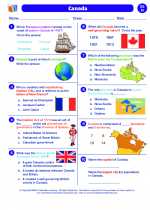Australia
Australia is a country and continent located in the southern hemisphere, comprising the mainland of the Australian continent, the island of Tasmania, and numerous smaller islands. It is the sixth-largest country in the world by total area.
Geography
Australia is known for its unique geography, including its famous "outback" regions, vast deserts, tropical rainforests, and diverse wildlife. The country is surrounded by the Indian and Pacific Oceans, and its closest neighbors include Papua New Guinea, Indonesia, and New Zealand.
History
The history of Australia is marked by the arrival of Indigenous Australians over 65,000 years ago, as well as the subsequent European exploration and colonization by the British in the late 18th century. The country has a complex history of indigenous cultures, colonialism, and immigration.
Government and Politics
Australia is a federal parliamentary democracy and a constitutional monarchy, with a parliamentary system based on the British model. The country is a member of the Commonwealth of Nations and has a Governor-General representing the monarch of the United Kingdom as the head of state.
Economy
Australia has a mixed-market economy with a strong emphasis on mining, agriculture, and services. The country is one of the world's largest exporters of coal, iron ore, and natural gas, and it has a high standard of living and a strong social welfare system.
Culture and Society
Australian culture is influenced by its diverse population, including Indigenous, British, and multicultural communities. The country is known for its sports, arts, literature, and vibrant urban centers. Australian society places a high value on equality, diversity, and environmental sustainability.
Study Guide
- What is the main continent that Australia is a part of?
- Describe the unique geographical features of Australia.
- Who were the original inhabitants of Australia?
- What type of government does Australia have?
- What are the main industries in the Australian economy?
- How is Australian culture influenced by its diverse population?
Use this study guide to review and deepen your understanding of Australia and its various aspects. Good luck!
[Australia] Related Worksheets and Study Guides:
.◂Social Studies Worksheets and Study Guides Eighth Grade. Canada
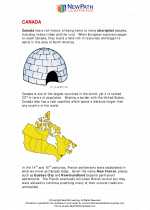
 Worksheet/Answer key
Worksheet/Answer key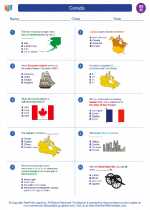
 Worksheet/Answer key
Worksheet/Answer key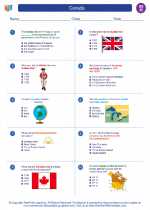
 Worksheet/Answer key
Worksheet/Answer key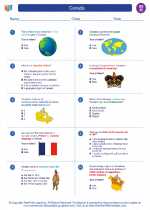
 Worksheet/Answer key
Worksheet/Answer key